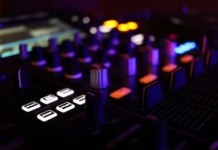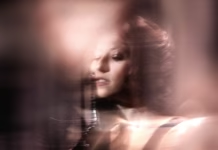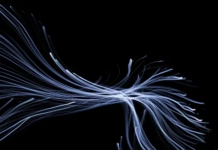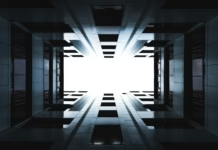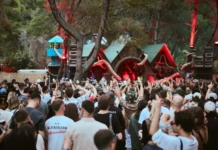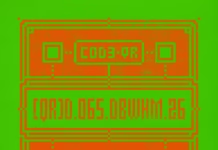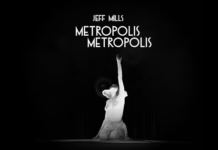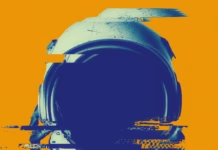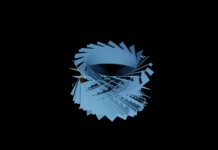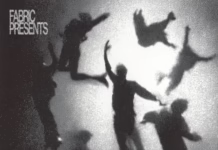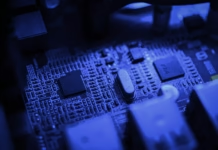Listen up! In the midst of the reawakening club scene DJ Hell returns with the album House Music Box (Past, Present, No Future). Unlike its predecessor Zukunftsmusik (
Back to the roots. Accordingly, Hell’s Opus number six has become a classic album: House Music Box simply contains eight gripping new bangers from the groove manufacturer that is the super gigolo Hell. The record is not only a concept album about the beginnings of electronic DJ and club music, but also a danceable history lesson. This is already shown in the superb first single: ‘Out of Control’. A mighty stomping dancefloor monster where a killer bassline and an infectious synth riff meet. A vocal sample rightly demands ‘Don’t stop!’, because the magic that Hell has created with his controllers leaves one in a state of pure ecstasy.
The songs ‘Freakshow’ and ‘House Music’ are musical bows to the innovative originators of house music in the windy city. On ‘Freakshow’, the vocoder vocals ‘Ron Hardy is the true creator of house music’ remembers the prematurely deceased DJ who was best known for his eclectic sets and radical edits. His influence even stretches to the album’s title, Music Box, whose namesake club Hardy often deejayed in. On ‘House Music’, nomen est omen naturally applies: over the flawless house from the quality Hell brand, he loops various samples, fragments of sentences such as ‘Acid comes from house music’, ‘Techno comes from house’, ‘Foundation of house music is’, or ‘Chicago house music’. The persistent repetition plus grooving beats, achieves an almost hypnotic effect allowing the music – thanks to the magic production of Hell – to speak for itself.
On ‘Electrifying Mojo’, on the other hand, Hell honours the visionary and enigmatic Charles Johnson a.k.a. The Electrifying Mojo, whose radio show (airing from 1977 until the mid 80s) had a substantial influence on the development of techno in Detroit . As he frequently played Kraftwerk, for instance, the publicly shy Electrifying Mojo emerged as a key facilitator of future electronic music in the spirit of the Detroit-Dusseldorf axis.
It goes without saying that Kraftwerk – the prestige of German electronic music – shaped the background of Hell’s new record too, via the usage of vocoder vocals as a rhythmic element or the bass frequencies as the carrying foundation for each track. Clearly recognizable is the influence of Kraftwerk’s 1986 work Electric Café (now: Techno Pop) on the groovy track ‘Technicolor’. Fans of the ‘industrial folk music’ will hardly be surprised, as this was Kraftwerk’s working title for the record. Along with sound poetic vocals, Hell tickles a cool funk from the warm machine sounds over nimble bass lines, as on House Music Box he uses – not only for this track – the same analogue synths from the seventies as Kraftwerk once did.
The oeuvre of DJ Hell is famously characterised by his artistic desire to have a different approach to each album, while at the same time constantly providing an inner viscidity and cross references. One example is the theme of automobiles, influenced by Kraftwerk’s ‘Autobahn’: just think of songs like ‘Hellracer’ or ‘Car Car Car’. The car motive is again present on House Music Box, with the ambitious track ‘GPS’. Conceptually speaking, it is a highlight of the record: over sparse Roland drum machine beats, we can hear the female computer voice of a navigation device devising the fastest route to ‘destination Berlin nightlife’. This almost has a double meaning, as once inside the club, the music will guide the dancers.
There would be no DJ Hell album, without cover versions. Or, better called his idiosyncratic electronic editions of established hits new originals – referring to a term that Laibach coined. This definitely holds true for ‘The Revolution Will Not Be Televised’: his update of Gil Scott Heron’s soul classic turned into a veritable 4-on-the-floor version. The slogan, which originally came from the Black Power movement, carved out a remarkable career, not only thanks to several new versions, but equally used as an advertising slogan for bar chains. The fact that Hell takes up this track in the days of YouTube, Instagram and Facebook illustrates to us today that the idea of a political revolution is long gone. For that reason, all he keeps from the wordy original is its headline while the impulsive beats prove all the more, that at least the revolution of the dancefloor is nowhere near over.
Past, Present, No Future – even if Hell’s deep bow to the trailblazers and pioneers of electronic club music was already completed when the corona pandemic broke out, the subtitle of House Music Box proved apt even in the light of the circumstances. Especially as the club scene is so seriously affected by the coercive measures of the crisis. It is therefore quite prophetic that on ‘Jimi Hendrix’ you can hear pieces of the last interview that the guitarist gave shortly before his controversial death. “I can’t build anything right now, you know, because of the things that are happening right now. I just have to lay back and think about it all.” House Music Box is, in many ways, the right record at the right time. Because as DJ Hell speaks about his album: ‘House Music for me has always been a spiritual experience, a higher, different form of communication, so to speak’. So, let’s listen carefully to what he brings forth about his musical excursions in the Past, Present and Future of House.

Tracklist
1. Freakshow
2. G.P.S.
3. HausMusik
4. Jimmy Hendrix
5. Out Of Control
6. The Electrifying Mojo V2
7. The Revolution Will Be Televised
8. Tonstrom
Stream Out of Control, Follow DanceUP playlist
https://www.facebook.com/DJHellOfficial

![Premiere: Strangebound – UR Fu*t [Ducale Records]](https://dubiks.com/wp-content/uploads/2026/02/Strangebound-218x150.avif)
![Premiere: Spryt Electra – I Feel You [DeepDownDirty]](https://dubiks.com/wp-content/uploads/2026/02/DeepDownDirty-Acid-Vol-7-218x150.avif)
![Premiere: i4M2 – Street Jacket [drone alone]](https://dubiks.com/wp-content/uploads/2026/02/i4M2-ARTIST-218x150.avif)
![Premiere: Fear-E “Escape Room” [Posh End Music]](https://dubiks.com/wp-content/uploads/2026/02/Fear-E-Pic2-218x150.avif)
![Premiere: Alex Niggemann – Cloudy Chords [COD3 QR]](https://dubiks.com/wp-content/uploads/2026/02/Alex_Niggemann-218x150.avif)
